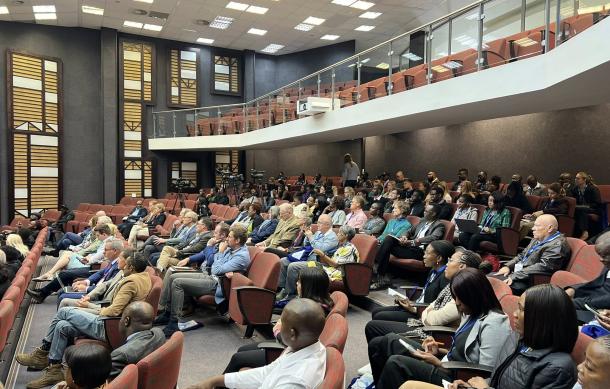
The University of Namibia (UNAM) is hosting the inaugural Southern African Prostate Cancer Summit, which aims to bring coordinated attention to prostate cancer as a growing public health issue in the region.
The three-day summit will focus on consolidating regional data and research on prostate cancer, sharing best practices in screening, treatment, and survivor care, identifying funding priorities, and addressing implementation gaps.
It also seeks to chart a clear path forward through coordinated national and cross-border interventions.
The Minister of Health and Social Services, Esperance Luvindao, addressed the summit, highlighting the strides Namibia has made in cancer control.
"Over the past decade, Namibia has made considerable investments in cancer control, expanding diagnostic services and investing in oncology infrastructure as well as decentralising basic cancer screening across all 14 administrative regions and the country. However, we recognise that more needs to be done; this is where we realise that as a collective."
The Head of the Medical Department at the Patient Representative Organisation, Dr Gerrit Keyter, said that cancer control, and particularly proactive prostate cancer management, is not only crucial to saving lives, but it also reduces the treatment burden on the already financially strained health system.
The summit is expected to serve as a turning point in addressing the rising number of prostate cancer diagnoses in the region.
Speaking on behalf of the Vice Chancellor of the University of Namibia, Ellen Ndeshi Namhila, described the summit as aligned with UNAM's strategic direction and a necessary step toward raising awareness.
"It is my sincere hope that the outcomes of the deliberations of this Prostate Cancer Summit will contribute to public awareness and development of effective strategies to address prostate cancer as a public health issue in Southern Africa, in a coordinated manner."
Over the next three days, the conversation will focus on transforming prostate cancer from a life-threatening condition to one that can be detected and treated early, saving lives and strengthening health systems across the region.





